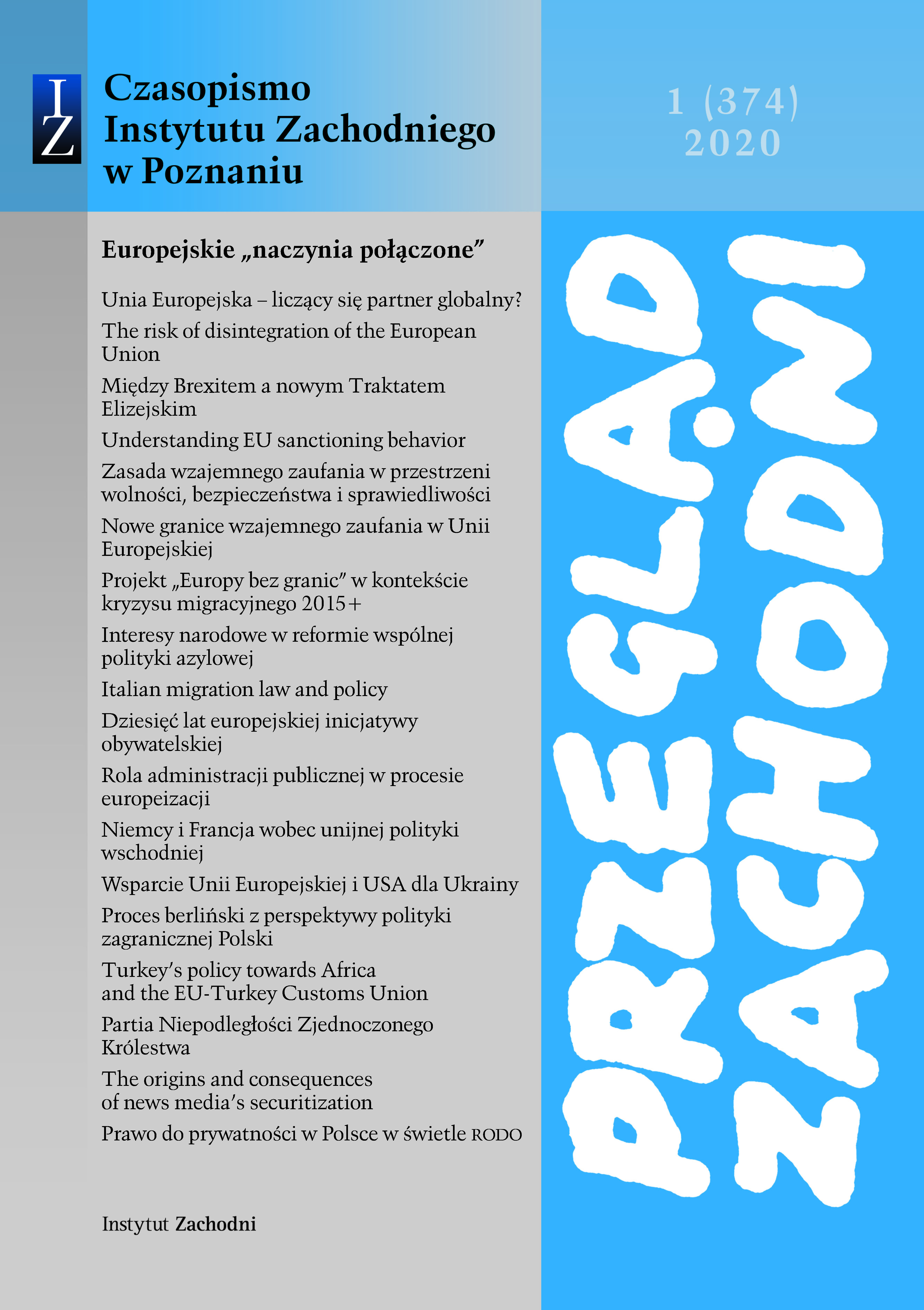Proces Berliński i jego znaczenie z perspektywy polityki zagranicznej Polski
The Berlin Process and its importance from the perspective of Polish foreign policy
Author(s): Renata PodgórzańskaSubject(s): EU-Accession / EU-DEvelopment
Published by: Instytut Zachodni im. Zygmunta Wojciechowskiego
Keywords: foreign policy; European integration; Western Balkans; international relations
Summary/Abstract: Since the 1990s many formats and initiatives for stability and security of the Western Balkan states have emerged, which include a broad array of support instruments. One of the formats of cooperation involves the Berlin Process, which increasingly affects the Balkan reality. A number of political factors determined Poland’s joining in the mechanism. The aim of the paper is to identify and systemize them as well as analyse the importance of this initiative from the perspective of Polish foreign policy. It has been assumed that after 1989 due to the focusing of Polish diplomacy on the pursuit of strategic interests, the area of Southeast Europe, the discussed Western Balkan states included, was located at the margin of Polish foreign policy. The temporary increase in the activity of Polish diplomacy towards the region did not mean its appreciation from the perspective of Polish foreign policy but resulted only from a search for ways to boost the efficiency of implementation of its guidelines. What is more, modification of emphasis in the foreign policy after Poland’s accession to the European Union did not result in a modification of the Western Balkans’ position from the perspective of Polish interests. Taking the above into account a question arises about factors that determined the enhancement of Polish activity towards and for the region, an example of which includes joining in the mechanism of the Berlin Process. At the same time one needs to examine the forms and character of Polish involvement, and primarily to establish what resources and what instruments were supposed to support political declarations about the need to intensify Poland’s activity towards the Western Balkans region. The paper’s main hypothesis boils down to an observation that Poland, searching for ways to ground its position as a country involved in the development of the situation in the Western Balkans, joined in the initiative of the Berlin Process motivated, on the one hand, by the pursuit of Poland’s own interests resulting from the desire to boost its impact on the course of political processes in an international dimension, while on the other, its activity was dictated by the endeavour to intensify the region’s interrelations with the European Union. The detailed hypothesis, corresponding to the adopted research assumption, boils down to a statement that Poland has not become a key country in the context of the region’s integration with the structures of EU cooperation. Therefore, postulating the EU “open door” policy for years, regardless of its resources and capabilities, Poland became involved in various mechanisms supporting the expansion process. The main research methods used in the text include an institutional and legal analysis, a critical analysis of documents and the literature of the subject, and the comparative method.
Journal: Przegląd Zachodni
- Issue Year: 374/2020
- Issue No: 01
- Page Range: 251-273
- Page Count: 23
- Language: English, Polish

